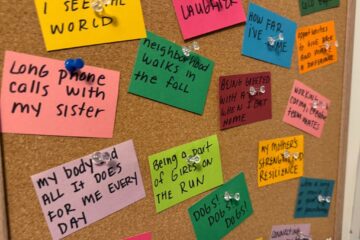She Is Like ME! Representation and Your Growing Girl
My youngest daughter, who is 3, was looking me over very seriously the other day. She said, “Mommy, are you done growing?” “Yes,” I nodded. She responded, “And, am I done growing?” “No,” I said with a smile. “You still have a lot of growing left to do.” She thought for a moment and said, “Am I gonna grow up and be like you?” Her questions revealed that she wants to know who she could be, and what her life could look like, by looking at mine. Even at the age of 3, she understands that she can and might grow up to be like mommy.
Your girl is constantly being shaped by ideas about who she is and who she can be. From the time she was very young, the people in her life have had a hand in her mental, emotional and social development. Did your little girl pretend to be a doctor, a chef, a mommy? Her pretend play was a portrayal of representation. Seeing real-life examples helped her realize she, too, could do these things.
Representation is seeing others like you and knowing you belong. Seeing positive examples of girls and women who are “like them” is important for girls’ social, emotional and mental well-being. Representation fuels how restricted or free girls are to live up to their greatest potential — both now and as they grow up — and can impact all areas of their lives. Educators have found better academic achievement and positive emotional benefits for students of color who have teachers who look like them versus those who don’t. Students of color who have teachers with shared identities are less likely to drop out of school and more likely to enroll in college than those who haven’t had a same–race teacher. Beyond our education system, women have been inadequately represented in almost every area of our culture. Women’s presence and contributions have been limited or overlooked in politics, arts, sports, business and entrepreneurship, STEM careers and almost every other area. This gender imbalance is compounded by race for black and brown girls, who don’t see enough girls and women like them doing the things they could do.
Representation impacts the growth and development of your girl throughout her lifespan. Find out what to look for and find out how adequate representation can improve her self-confidence and feelings of belonging.
Your elementary school-age girl and representation:
When your girl is in elementary school, she is learning to navigate peer and adult relationships. She may start to talk and act more like the other girls in her friend group. She may have a favorite teacher or coach. Representation can shape these relationships. Does she see her favorite teacher or coach, who is “like her” in some way, as “cool” or “fun” or maybe even want to be a teacher or coach when she grows up? If your daughter sees characteristics of her friends or important adults in herself — that’s representation. Your girl is growing in understanding the importance of both diversity in her relationships and of having friends and grown-ups who are “like her.” These foundational relationships can make lasting impressions on your girl, grounding her self-confidence and guiding some of her life dreams.
What you can do:
- Talk with your girl about what her peer and adult relationships mean to her.
- Praise your girl for building positive relationships with other grown-ups in her life.
- Listen for limiting words or attitudes by your girl about her future and encourage her to seek out examples of the kind of grown–up she admires.
- Ask your girl about the importance of belonging, diversity and representation.
Your pre-teen and representation:
As your girl approaches her teen years, she may be focused on her identity and independence, which is likely highly influenced by social media. Almost half of teens report being online “almost constantly,” a number that has doubled in the last five years. Increased social media use in girls has been linked to negative mental health outcomes such as anxiety and depression. Black and brown girls often have the added strain of maneuvering through media–portrayed racial stereotypes that can serve to limit their ideas of who they think they can become. Fortunately, the negative impacts of social media on girls can be combatted by having girls follow inspirational women role models. These interventions improve girls’ self-esteem and turn their attention to future goals and career aspirations.
What you can do:
- Share these social media stats with your girl and get her feedback.
- Find out who the girls or women are that she admires and why she admires them.
- Find out if your girl would be interested in getting involved in a local mentoring program.
- Start a “dream big” journal with your girl to find out who she is and encourage her in all she can be. Have her share ways she can inspire others “like her” to follow their dreams by pursuing her own.
To discover more parenting tips and resources, click here!




